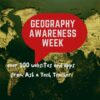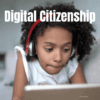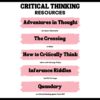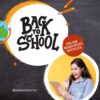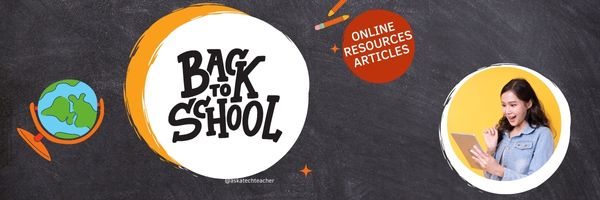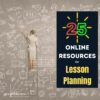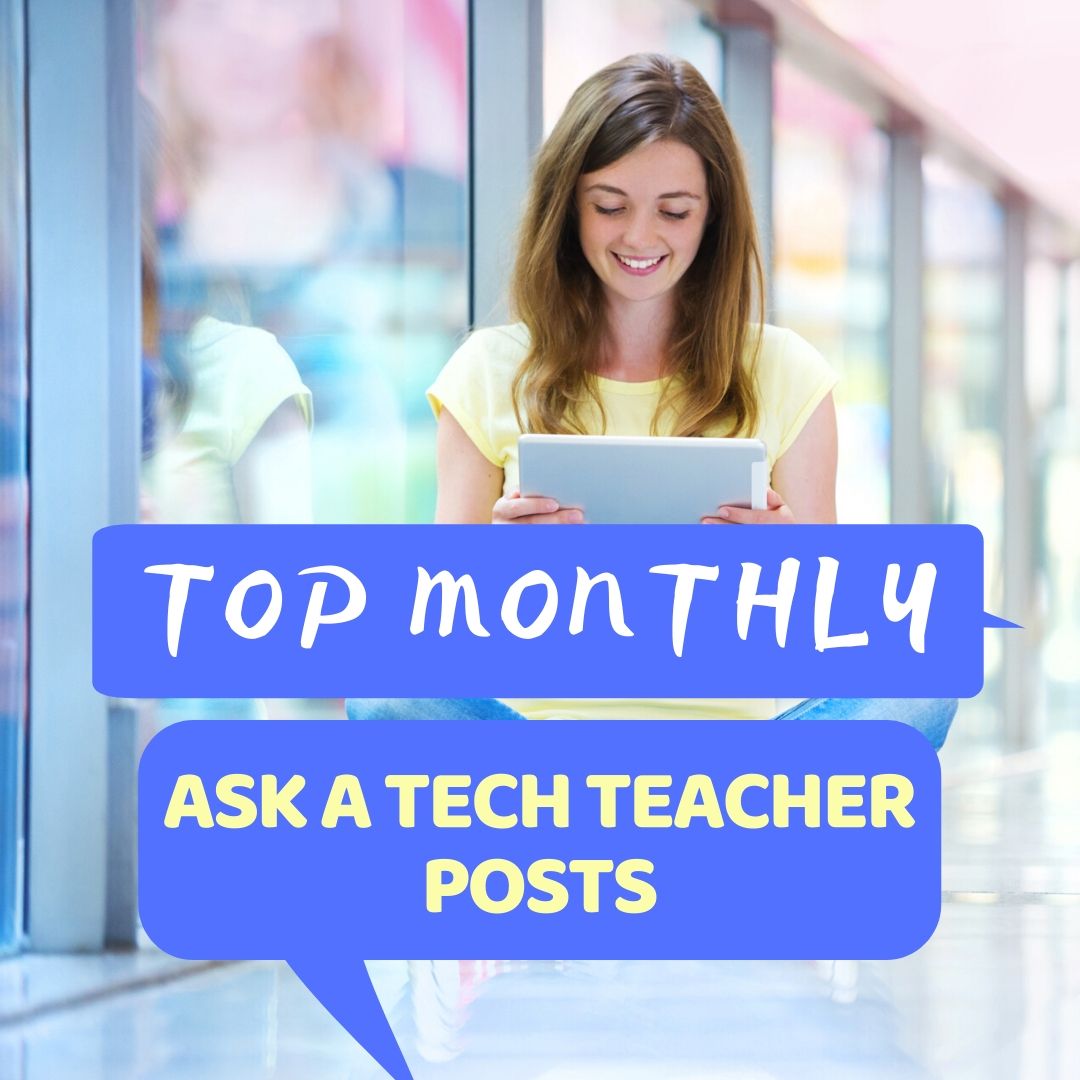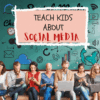
Tag: lists
Geography Awareness Week: November 14-18, 2022
Promoted by National Geographic, here’s what you should know about Geography Awareness Week which occurs November 14-18, 2022:
Too many young Americans are unable to make effective decisions, understand geo-spatial issues, or even recognize their impacts as global citizens. National Geographic created Geography Awareness Week to raise awareness to this dangerous deficiency in American education and excite people about geography as both a discipline and as a part of everyday life.
Each year more than 100,000 Americans actively participate in Geography Awareness Week. Established by presidential proclamation more than 25 years ago, this annual public awareness program encourages citizens young and old to think and learn about the significance of place and how we affect and are affected by it. Each third week of November, students, families and community members focus on the importance of geography by hosting events; using lessons, games, and challenges in the classroom; and often meeting with policymakers and business leaders. Geography Awareness Week is supported by access to materials and resources for teachers, parents, community activists, and all geographically minded global citizens.
Here are excellent web resources to promote your geography lessons (click headings for more links):
Share this:
100s of Websites on STEM-STEAM
After you’ve checked out our favorite STEAM resources, here are some of those that teachers use to teach STEM and STEAM:
Science
Technology
Engineering
Art
Math
Share this:
100+ Websites on Digital Citizenship
Here are popular resources teachers are using to teach about digital citizenship. Click the titles for more links:
Avatars
Copyrights and Digital Laws
Curriculum
- Applied Digital Skills–all tech skills
- Google’s Be Internet Awesome–abbreviated course
- K-8, scaffolded, Ask a Tech Teacher (with projects)
Cyberbullying
Cybersecurity
- Cyber Patriot program–by the Air Force
DigCit–General
Digital Footprints
Digital Privacy
Digital rights and responsibilities
Digital Search and Research
Share this:
Teach Critical Thinking
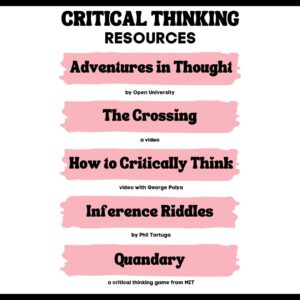 There’s a reason why the brain uses 25% of the calories you eat: Thinking is hard work. Subjects like math and science — the ones only “smart” kids do well in — demand that you find patterns, unravel clues, connect one dot to another, and scaffold knowledge learned in prior lessons. Worse, you’re either right or wrong with no gray areas.
There’s a reason why the brain uses 25% of the calories you eat: Thinking is hard work. Subjects like math and science — the ones only “smart” kids do well in — demand that you find patterns, unravel clues, connect one dot to another, and scaffold knowledge learned in prior lessons. Worse, you’re either right or wrong with no gray areas.
Wait. Where have we heard those characteristics before? In games! Do these descriptions sound familiar (ask your game-playing students)?
Take the helm of your own country and work together with others to solve international problems!
Manage your city so it’s energy efficient and sustainable.
Solve a mysterious outbreak in a distant tropical jungle and save the scientists.
All torn straight from the taglines of popular games. Kids love playing games, leveling up, and finding the keys required to win. They choose the deep concentration and trial-and-error of gameplay over many other activities because figuring out how to win is exciting. So why the disconnect among teachers and parents when applying gameplay to learning?
Surprisingly, all you need is one simple mindshift to do this: Create a classroom environment where thinking isn’t considered work. Don’t say science and math are hard. Don’t jump in to solve problems. Let students thrill with the excitement of finding their own solutions. The great thinkers of our time understand that everyone is capable of finding solutions:
“Failure isn’t falling down; it’s not getting up.” — Mary Pickford
“No problem can withstand the assault of sustained thinking.” — Voltaire
“Life is a crisis. So what?” — Malcom Bradbury
I’ve discussed problem-solving before (see How to Teach Students to Solve Problems). Today, I want to share five favorite websites that turn the deep-thinking required for solving problems into fun:
Share this:
Back To School Websites
Here are a few of the popular resources teachers are using to
We write about back to school often on Ask a Tech Teacher. Here are some of the past articles I think you’ll like:
- 8 Tech Tools to Get to Know Your Students for Back to School
- 3 Apps to Help Brainstorm Next Year’s Lessons
- 11 Back-to-school Activities for the First Month of School
- Great Back to School Classroom Activities
- Plan a Memorable Back to School Night
- New School Year? New Tech? I Got You Covered
- 5 Top Ways to Integrate Technology into the New School Year
- 5 Ways to Involve Parents in Your Class
- 6 Tech Best Practices for New Teachers
- 5 Tech Ed Tools to Use this Fall
- How to Build Your PLN
- 5 Ways Teachers Can Stay on Top of Technology
- 5 FREE Web Tools for a New School Year
- Dear Otto: I need year-long assessments
- Great Activities for the First Week of School
Share this:
25 Websites for Lesson Planning
Here are a few of the popular resources teachers are using for lesson planning:
Organize/Create lesson plans
- Alma–create standards-based lessons and gradebook, with analytics
- BlendSpace–blend a variety of digital materials into one canvas for students
- CK-12 — and differentiate for student learning styles
- Educreations
- Explain Everything–screencasting, interactive whiteboard
- GoConQR–create and manage planners
- Kiddom
- LearnZillion
- Nearpod–access lessons from mobile device or desktop
- PearDeck
- Planbook–simple lesson planning that can be shared, expanded with attached files; yearly fee
- Show Me
- Standards Planner–drag-drop resources to customized schedule (free or fee)
- Sutori
- TEDEd–-create lesson plans using TED talks and/or YouTube
- TES–create digital lesson plans quickly
Get Lesson Plans
- 110 lesson plans by topic, tool, and grade
- AKC–animal-themed lesson plans for grades 6-8
- CyArk–geography-based lesson plans
- Free lesson plans on many topics
- Google Education—lesson plans, more
- Hello Ruby–lesson plans on technology
- Inexpensive lesson plans on popular topics
- TEDEd--great for flipped classrooms
- World Wildlife Federation activities
For updates to list or more, check the Ask a Tech Teacher resource pages for ‘Lesson Planning’.
What’s your favorite place to get help on lesson planning? Share it in the comments below.
–Image credit Deposit Photo
Share this:
What You Might Have Missed in June–What’s up in July
Here are the most-read posts for the month of June
- June is Internet Safety Month
- World Environment Day: Living Responsibly with Nature
- Tech Tip #91: Rollback Windows Updates
- What you Need to Know about Evaluating Apps
- 6 Tech Activities for Your Summer School Program
- Looking for Summer Activities? Try These
- 15 Skills To Learn this Summer and Use Next Year
- 6 Websites that Teach Letters
- Need a New Job? Here’s What You Do
- 9 Websites to Address Social Media
Here’s a preview of what’s coming up in July:
- 17 Ways to Add Tech to your Lessons Without Adding Time to Your Day
- Top PC Shortkeys
- Tech Ed Lesson Plans
- Free Posters
- Habits of Mind
- We Land on the Moon
- Mentoring
- How to get Started with Ask a Tech Teacher

Share this:
9 Websites to Address Social Media
If you read our article on teaching social media awareness, you may be looking for online tools to teach students about this subject. Here are some we recommend:
- #Hashtag You’re It–video; your hashtags may reveal more than you think
- 10 Social Media-inspired Learning Activities--no accounts required; from Ditch That Textbook
- How is Social Media Transforming the Future of Education? — As technology advances, traditional methods of learning and instruction are being challenged. Can we learn a complex subject? A video–the first minute will shock you.
- SMS Generator–fake SMS messages through ClassTools
- Social Media Revolution–video; great music–over 3 million views–don’t miss this one
- Social Media for Teachers–a simple guide for getting started using it in the classroom
- Spot the Troll–recognize fake SM accounts
- Teaching and Learning in the Age of Social Media–a TEDx Talks video
- When is your brain ready for Social Media? –video; good presenter; good for kids; part of a series of videos on SM
Always check our resources pages for updates to links. We do that about once a year. Here’s the Social Media page with most current links.
Share this:
6 Websites that Teach Letters
A lot of online sites can make learning letters fun for kids. Here are a few of my favorites:
- Find the letter–easy, medium, hard–from PBS kids, intuitive to use; even K won’t have any trouble with it
- Hands on Learning--20+ Simple Activities for Kids to Start Learning Letters
- Learn Letters with Max (video)–20 minute video with over 200 million views
- Owl and Mouse Learn Letters–a group of websites to learn letters and sounds
- Starfall Letters–follow the link but also check out other pages on this stellar website
- Wheels on the Bus (video)
If any of the links above are dead, check the master list.

Jacqui Murray has been teaching K-18 technology for 30 years. She is the editor/author of over a hundred tech ed resources including a K-12 technology curriculum, K-8 keyboard curriculum, K-8 Digital Citizenship curriculum. She is an adjunct professor in tech ed, Master Teacher, webmaster for four blogs, an Amazon Vine Voice, CSTA presentation reviewer, freelance journalist on tech ed topics, and author of the tech thrillers, To Hunt a Sub and Twenty-four Days. You can find her resources at Structured Learning.
Share this:
13 Websites That Provide Lots of Digital Books for Summer Reading
 At the beginning of the 21st century, the definition of digital equity revolved around the provision of a digital device to every student. Usually, that meant desktop computers, iPads, and laptops, either in small groups or 1:1. As digital equity discussions matured and hyperbole became reality, educators found that those loudly-touted digital devices often became paperweights. The reasons were varied (teacher training, infrastructure, and professional support to name a few), but one of the most prominent was money. Good intentions to give all students access to the world’s knowledge were derailed by the cost of the websites and webtools that made that happen. Turns out — and not really a surprise — the cost of the digital devices was minor compared to the cost of the websites and webtools required to meet goals.
At the beginning of the 21st century, the definition of digital equity revolved around the provision of a digital device to every student. Usually, that meant desktop computers, iPads, and laptops, either in small groups or 1:1. As digital equity discussions matured and hyperbole became reality, educators found that those loudly-touted digital devices often became paperweights. The reasons were varied (teacher training, infrastructure, and professional support to name a few), but one of the most prominent was money. Good intentions to give all students access to the world’s knowledge were derailed by the cost of the websites and webtools that made that happen. Turns out — and not really a surprise — the cost of the digital devices was minor compared to the cost of the websites and webtools required to meet goals.
There is one bright spot in this story: Online books. Thanks to the efforts of many devoted professionals and the financial support of more, there are a wide variety of free/inexpensive sources for books that students can use for classroom activities as well as pleasure.
Here are a list of sites that offer digital books for kids to adults:

